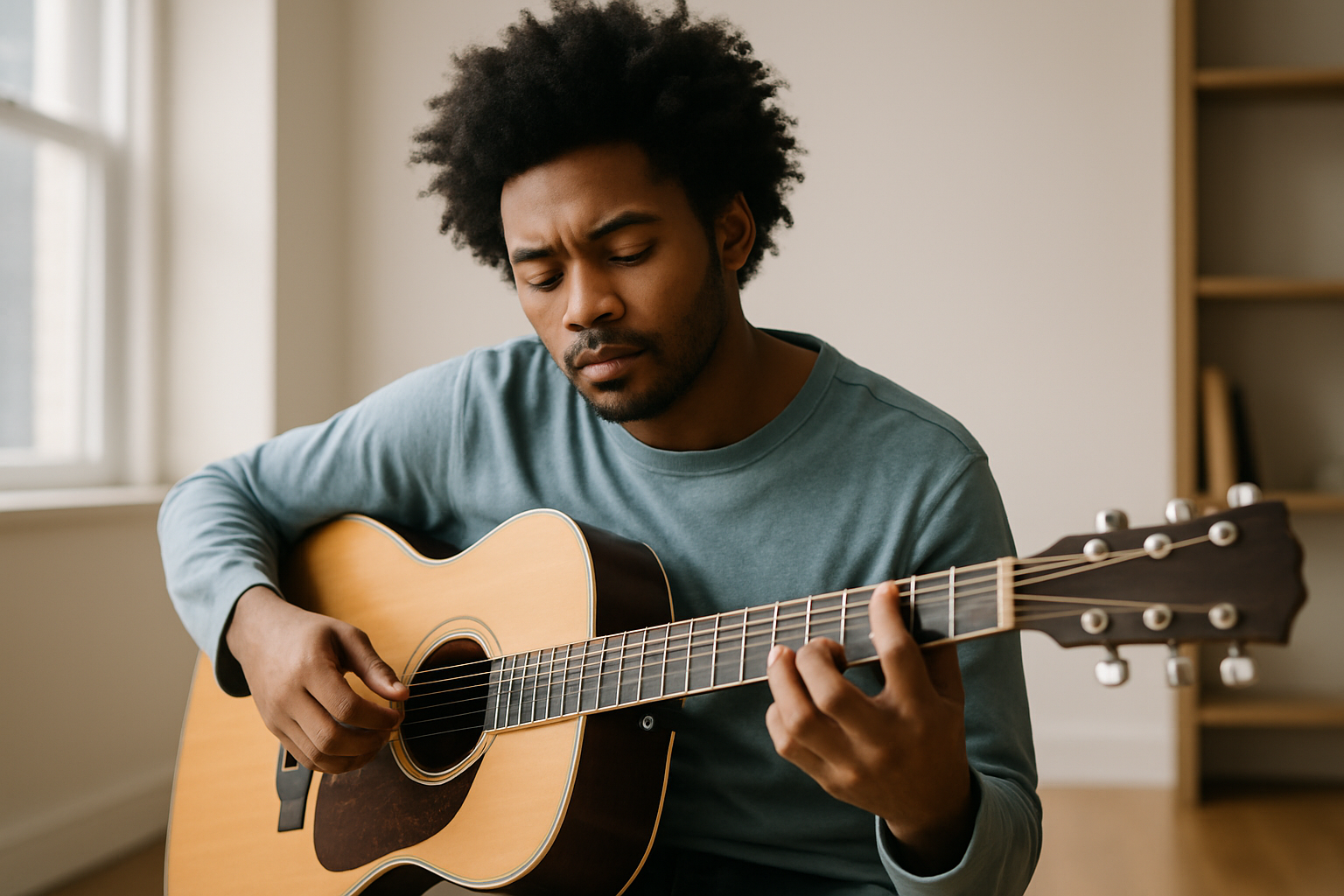Every musician, whether beginner or professional, has faced the frustrating moment when progress seems to stall. You sit down to practice, but nothing flows. Pieces that once excited you feel boring, new ideas don’t come, and motivation drops. This experience is known as a creative block, and it can be discouraging if you don’t know how to handle it.
The good news is that creative blocks are normal. They don’t mean you lack talent or that you should give up. In fact, they are often opportunities to grow, explore new perspectives, and refresh your relationship with music. Learning how to manage creative blocks is essential for long-term musical development.
Why Creative Blocks Happen
Repetition Fatigue
Practicing the same scales or pieces without variety can lead to boredom and loss of inspiration.
Perfectionism
Expecting flawless results creates pressure and fear of mistakes, which stifles creativity.
Lack of Clear Goals
Without direction, practice can feel aimless, leading to frustration.
External Stress
Life stress, school, or work can drain mental energy and make practice harder.
Comparison With Others
Constantly comparing yourself to peers or professionals can lead to discouragement.
Recognizing the Signs of a Creative Block
- Feeling uninspired to practice.
- Playing mechanically without enjoyment.
- Struggling to start new pieces.
- Frustration or impatience during sessions.
- Avoiding your instrument altogether.
Acknowledging these signs early allows you to take proactive steps instead of spiraling into discouragement.
Strategies to Overcome Creative Blocks
1. Change Your Environment
Sometimes a fresh setting sparks creativity. Practice in a different room, outdoors, or even rearrange your practice space to feel more inspiring.
2. Set Smaller Goals
Instead of aiming to master a whole piece, focus on learning one phrase or improving tone quality for a few measures.
3. Add Variety
Introduce new activities like improvisation, ear training, or learning a piece from a different genre. Variety reawakens interest.
4. Embrace Mistakes
Treat errors as experiments rather than failures. This mindset frees you to take risks and explore.
5. Take Breaks
Sometimes the best solution is rest. A short pause refreshes your mind and helps ideas flow again.
6. Use Creativity Exercises
Try composing a short tune, improvising with limited notes, or changing the rhythm of a familiar melody.
7. Listen to Music
Expose yourself to different artists, styles, and instruments. Inspiration often comes from hearing how others express themselves.
8. Collaborate With Others
Playing with friends or joining an ensemble adds social energy and accountability.
9. Reflect on Your “Why”
Remind yourself why you started music in the first place—joy, expression, or curiosity. Reconnecting with purpose reignites passion.
Practical Exercises to Unlock Creativity
- Improvisation Challenge
Choose three notes and create a short improvisation. Limiting options can spark unexpected creativity. - Rearrange a Familiar Piece
Take a piece you know and change its rhythm, tempo, or dynamics. - Compose a Daily Phrase
Write a short musical phrase each day, no matter how simple. Collecting these builds momentum. - Genre Swap
Play a classical piece with a jazz feel or a pop song with classical phrasing. This cross-genre play keeps practice fun. - Practice Backwards
Start with the last section of a piece and work your way to the beginning. This breaks routine and adds freshness.
The Psychological Side of Creative Blocks
Fear of Failure
Blocks often stem from fear—fear of not being good enough, of making mistakes, or of disappointing yourself. Shifting to a growth mindset helps.
Burnout
Practicing too intensely without balance leads to exhaustion. Regular breaks and rest days prevent burnout.
Pressure From Expectations
Whether from teachers, family, or yourself, high expectations can freeze creativity. Learning to enjoy the process reduces pressure.
The Role of Teachers in Overcoming Blocks
Teachers can help by:
- Suggesting new repertoire.
- Encouraging improvisation.
- Providing constructive feedback instead of only correction.
- Reminding students of their progress and achievements.
A supportive teacher reframes blocks as normal and temporary.
Long-Term Habits to Prevent Blocks
- Keep a Practice Journal: Tracking progress provides motivation during tough days.
- Balance Structure and Freedom: Mix technical drills with creative exploration.
- Celebrate Small Wins: Recognize progress, no matter how small.
- Stay Curious: Always explore new music, instruments, and styles.
Inspirational Stories
- Beethoven: Despite losing his hearing, he overcame unimaginable creative blocks and composed timeless masterpieces.
- Miles Davis: Known for improvisation, he famously turned “wrong notes” into inspiration for new directions.
- Modern Musicians: Many artists share how blocks often preceded major breakthroughs in their style.
These stories remind us that blocks are part of every musician’s journey.
Final Thoughts: Turning Blocks Into Breakthroughs
Creative blocks can feel frustrating, but they are not the end of progress—they are part of the path. By approaching them with curiosity instead of fear, you can transform them into opportunities for growth.
Remember: music is not just about constant forward motion. It’s about exploration, reflection, and expression. When creativity feels stuck, it is simply a signal to change perspective, rest, or try something new.
So the next time you face a block, don’t give up. Instead, ask: What is this moment teaching me? With patience and persistence, your block may become the starting point of your next breakthrough.
